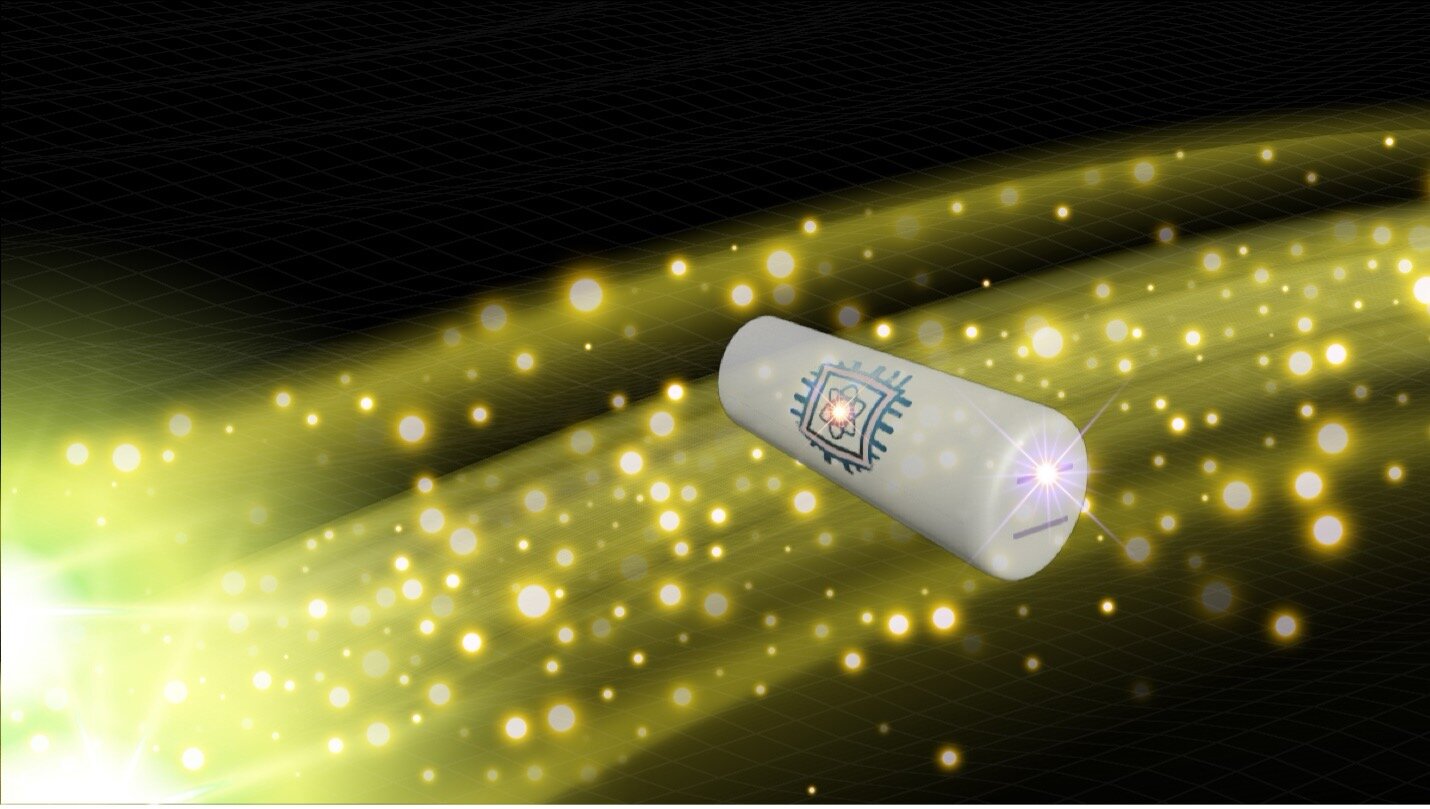Capturing a graviton: a quantum revolution
Follow us on Google News (click on ☆)
Researchers led by Igor Pikovski, a professor at Stevens Institute of Technology, have proposed an experiment to detect gravitons, the fundamental building blocks of gravity. Until now, these particles have been considered impossible to observe directly.

Gravity is thought to be made of tiny quantum blocks known as gravitons, but so far, they have proved too elusive to be observed. A new discovery by Pikovski's research group shows that next-generation quantum sensors can capture a single one.
Credit: Pikovski Research Group
Gravitons, according to quantum theory, are the fundamental blocks of gravitation, much as photons are for light. Although gravitational waves have been detected, no graviton has yet been observed.
Pikovski's team has devised a method using an acoustic resonator, a heavy cylinder coupled with advanced quantum sensors. This technology would allow for the observation of graviton absorption and emission through "quantum jumps."
To detect these quantum jumps, the resonator's material needs to be cooled while monitoring energy changes with each pass of a gravitational wave. This technique is inspired by the photoelectric effect discovered by Einstein.
Data from observatories like LIGO, which detect gravitational waves, could be used to help isolate these unique gravitons. However, the necessary technologies are not yet fully developed.
The team remains optimistic: the rapid advances in quantum technologies offer hope for imminent breakthroughs in graviton capture. A new step in the quest to unify gravitation and quantum mechanics could be within reach.
Pikovski emphasizes the importance of pursuing this research despite the obstacles, drawing inspiration from the early discoveries of light quanta over a century ago.
What is a graviton?
A graviton is a hypothetical particle that would represent the smallest unit, or quantum, of gravitational interaction.
In modern physics, each fundamental force is mediated by a quantum particle, and for gravity, this would be the graviton. However, unlike photons for light, gravitons have never been directly observed due to their extremely challenging nature to detect.
Gravitons are assumed to be massless and would travel at the speed of light. Their existence fits into the search for a unifying theory between quantum mechanics and general relativity, an area still largely unexplored known as "quantum gravity."
If gravitons exist, their detection could revolutionize our understanding of the universe and the fundamental forces that govern it.